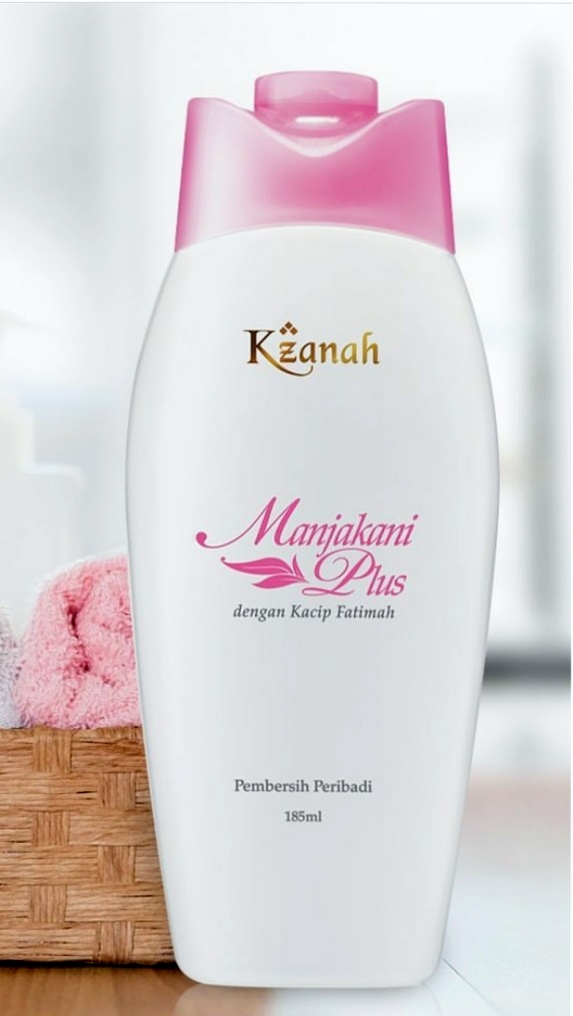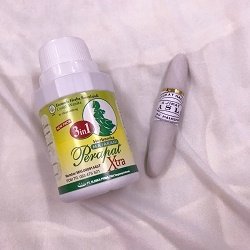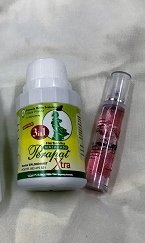Vaginal Sweating
Vaginal sweating is very annoying for most of us. Its associated odor and itching may cause us to shy away from social activities.
The medical term for excessive sweating or perspiration in the vagina, groin, buttock and thigh region is known as truncal hyperhidrosis.
A sweaty genital creates an ideal environment for microbes to thrive. The dampness encourages the overgrowth of bad bacteria. This is an ideal environment for getting :-
- bacterial vaginosis
- vaginal yeast infection,
- Boil on vagina lip and vaginal bumps.
How To Reduce Vaginal Sweating
Excessive vaginal sweating cannot be totally eliminated. But you can control and manage it by adopting the following measures:-
Practice Good Vaginal Hygiene
 Kacip Fatimah Vagina Wash
Kacip Fatimah Vagina WashBathe twice a day and cleanse the genital area with this Manjakani Feminine wash. Your vagina will stay fresh, deodorized and odor free all day.
Use unscented pads and change it after every 3-4 hours when you are menstruating. To reduce sweat and odor in the crotch, wash or wipe the intimate area with baby wipes before putting on a fresh pad.
Avoid using antiperspirants in the vulva area. The chemicals in these products irritate the vaginal mucous membrane. It will give you more vaginal health problems.
Most talcum powders are scented. They are made from finely powdered combinations of ground zinc, stearate and silicates. They block skin pores, thus increasing vaginal sweating.
Apply good quality cornstarch instead. It is a natural ingredient, unscented, absorbs moisture and it is safe to use on the groin and the vulva. Do Not put it inside the vagina!
Absorbent Pads
Absorbent panty liners is a good protection for sweat in the vagina when you are in a social environment. But be sure to change them frequently as the trapped sweat smells.
Shaving Or Waxing Pubic Hair
Make it a habit to regularly trim or shave pubic hair to reduce sweat and odor in the vagina.
Or you might opt for a Brazilian wax aka "Sphynx" bare waxing or Hollywood waxing. You will be completely hairless from belly button to buttocks.
For a more natural look, you can request to have a triangular tuft of hair remaining on the top of the vagina.
Clothing
Wear cotton panties and pants make from natural fibers (cotton or linen) as these materials allow air to circulate. Lace is sexy but you will sweat more. And silk? Give it a miss.
Cotton is cooling so sweat and moisture will dry quickly. Avoid spandex and nylon materials. They trap heat and moisture, thereby encouraging vaginal sweating.
Choose loose clothing on the days you know you will be sweating a lot. Tight clothing makes you feel more hot. Thus you sweat more and your sweat stains will easily show on tight clothes.
Palazzo pants are great choices for summer days as they are make of light material. If you must wear skirts and shorts, make sure they are light and breezy. Avoid denim shorts and tight mini skirts.
Diet
Cut down on sugar, caffeine, alcohol and spicy foods. The breakdown of these foods elevates body heat. Your nether region will sweat more when you are feeling warm all over.
Eat a balanced diet. Include more fruits, vegetables and whole grain foods. Reduce your salt intake and drink at least eight big glasses of water.
A healthy diet not only boost your general health. It controls vaginal sweating and vaginal pimples and bumps as well.
Herbal Remedies For Vagina Sweating
Sage and St John’s Wort can help to reduce excessive sweating. They promote a sense of calmness and serenity when you are feeling anxious or nervous.
As with all herbal remedies it takes time to feel the effect. Give it at least three weeks.
You can make a tea with either sage or St. John’s wort by steeping 1 tablespoon of dried St John’s Wort or sage in a cup of hot water for 5 minutes; add a tablespoon of honey and a wedge of lemon if desired.
Drink these herbal teas in the mornings and evenings and you will feel the difference in a week or two.
Medical Intervention to Control Sweating in the Crotch
Other than natural treatments, sufferers of hyperhidrosis (excessive sweating on the palms, soles, face and underarms) have also sought out oral medication, Botox and Endoscopic thoracic sympathectomy (ETS). Although effective for some sufferers these three medical interventions comes with significant side effects.
Side effects of oral medication include dry mouth, dizziness, blurred vision and urinary problem.
Botox injection causes flu-like symptoms and injection-site pain. Whereas ETS which is a minimally-invasive surgery carries risk of breathing problems and allergic reactions to medicines.
Due to the sensitivity of mucous membranes in the vagina, these three types of medical intervention are not suitable.
Proper vaginal hygiene, herbal remedies and a balanced diet are still the best solution for reducing vaginal sweating.
Back to top- Home
- Vaginal Hygiene
- Vaginal Sweating

